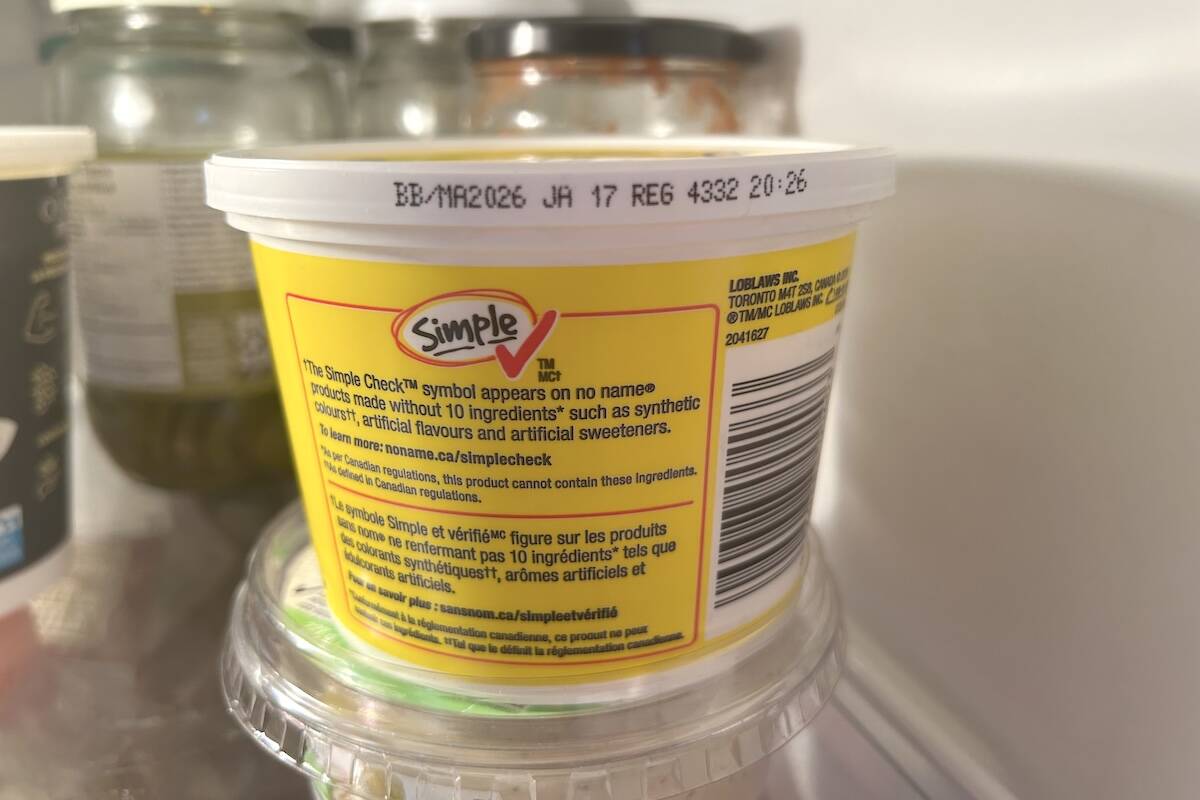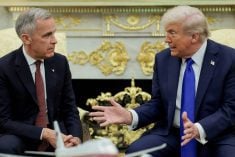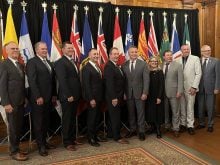Russia’s invasion of Ukraine and the following war has tested the resilience of both countries, but it has also tested Ukraine-supporting nations in the West.
This much was evident from the mixed reception Ukraine’s president, Volodymyr Zelenskyy, received when he visited the U.S. and Canada in late September. Meanwhile, tensions in Europe over Ukrainian support have flared again.
With the Ukrainian counteroffensive still not living up to perhaps inflated expectations, we are beginning to see the first serious signs of a fraying consensus in the West when it comes to backing Ukraine for as long as it takes.
Read Also

Best before doesn’t mean bad after
Best before dates are not expiry dates, and the confusion often leads to plenty of food waste.
Addressing the UN general assembly in New York, Zelenskyy made a passionate appeal to fellow world leaders to uphold international law and order and support his country. While there remains widespread backing for the principles of sovereign equality and territorial integrity, it gets fuzzier when it comes to how to end the war.
There are two camps. Many western leaders follow Ukraine’s line that the country’s territorial integrity must be restored first. Others, including many nations in the global South, emphasize dialogue and an early cessation of violence.
The following morning’s UN Security Council open debate on the war in Ukraine featured a predictable clash between Zelenskyy and the Russian foreign minister Sergey Lavrov, who presented very different accounts of causes and dynamics of the war.
But before the debate could conclude, the Security Council turned its attention to the crisis in Nagorno-Karabakh, a clear indication that Ukraine is not the only urgent issue on the global agenda.
Zelenskyy went on to secure another military aid package worth US$325 million from the U.S., directly allocated by U.S. president Joe Biden under the so-called presidential drawdown authority.
A further US$24 billion, subject to congressional approval, is more problematic.
The Republican House majority leader, Kevin McCarthy, would not commit to putting a bill on the legislative schedule to that effect before the end of the year. McCarthy also kept the Ukrainian president from addressing a joint session of the House and the Senate, another sign of growing Republican resistance to the Biden administration’s enthusiastic support of Ukraine.
In Canada, however, Zelenskyy received a universally warm reception and left with a military aid package worth C$650 million.
Meanwhile, in Europe, three of Kyiv’s neighbours inside the EU – Hungary, Poland and Slovakia – defied the end of a ban on Ukrainian grain imports. Poland went one step further and put a temporary halt on any weapons deliveries to Ukraine.
This was decried by Zelenskyy in his speech before the UN general assembly as “political theatre” and a gift for Moscow.
The grain dispute between Poland and Ukraine has been simmering for some time. Importantly, it foreshadows other potential obstacles in Ukraine’s path to EU membership.
Some of these barriers are potentially within Ukraine itself.
Accession negotiations will not be opened before a positive recommendation from the commission on Kyiv’s progress concerning seven conditions set in June 2022. This decision is expected before the end of 2023.
Once accession talks start, the interests of individual EU member states will play a greater role in determining the speed at which Ukraine can progress. The current spat with Poland is but one indication of potential trouble ahead, albeit in the particularly sensitive area of the EU’s common agricultural policy. This will be deeply affected if Ukraine – a global agricultural superpower – joins.
Poland’s prime minister, Mateusz Morawiecki, clearly wants to be seen to be protecting his country’s farmers from Ukrainian exporters, particularly in the run-up to a parliamentary election next month.
But this is also about leadership and the potential challenge that Ukrainian EU membership would pose to Poland’s ambitions to be the main voice of the bloc’s eastern members.
Such an open attack on Zelenskyy and his policies significantly shifts the dial in what is considered acceptable criticism of the highly charismatic Ukrainian president. It comes in the wake of growing Western unease about the course and cost of the war.
This is not to say that Ukraine has not made progress since its offensive began just before the summer. In late September, Ukraine made further gains in its south and launched a spectacular attack on the headquarters of the Russian Black Sea fleet in occupied Crimea.
But Ukraine’s recent successes are almost certainly not enough to dispel the growing sense that the war is becoming a lasting stalemate.
Until now, Western support has underwritten Ukraine’s efforts to defend itself. But it has done no more than that and is not sufficient to enable a Ukrainian victory.
If this support begins to weaken, the prevention of a Ukrainian defeat can no longer be taken as a given. Nor could it be argued that this was merely a defeat for Ukraine.
It would also mean that the Western alliance did not have the stamina to prevail against Russia.
– This article first appeared in the Conversation, by Reuters.















